- Home
- slideshows
- miscellaneous
- 11 words you probably didn't know were acronyms
11 words you probably didn't know were acronyms
Laser is an acronym describing how the technology works.

'Taser' comes from the name of a science-fiction book character.
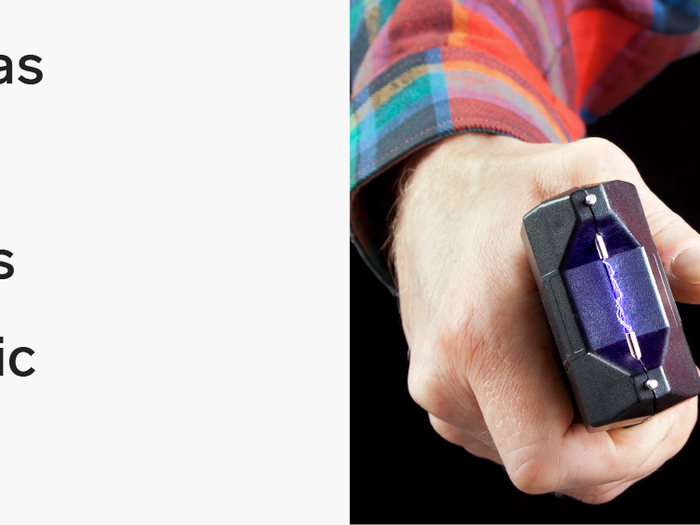
Tasers sound like an invention taken from science fiction, and as it turns out, the name of the device actually was.
The weapon was invented in 1974 by NASA researcher Jack Cover, and when it was time to give his device a name, he found inspiration in Tom Swift, the title character from a series of adventure books about a teenage inventor from the early 1900s. In one of the books, Swift invented an "electric rifle" that could shoot bolts of electricity and was powerful enough to bring down an elephant.
Cover did have to employ some creativity with the word "Taser" — the books never actually reveal Tom Swift's middle name, but Cover added it to ease the pronunciation.
The 'BASE' in BASE jumping describes the objects people jump from.

For thrill-seekers, BASE jumping is one of the most adrenaline-filled activities out there.
"BASE" is an acronym describing the types of objects the risk-taking parachuters jump from: building, antenna, span (like a bridge or steel beam) and Earth (like a cliff).
CAPTCHA pays homage to an early computer pioneer.

Anyone who's used a computer is probably familiar with CAPTCHAs, the little tests on some webpages that require you to answer a math problem or type a word to prove that you're human.
But you may not be aware that the word actually stands for something — it's a "Completely Automated Public Turing test to tell Computers and Humans Apart."
Turing tests, devised by computer pioneer Alan Turing, are used to judge how convincingly a computer can participate in natural human conversations, so it's fitting the inventors of CAPTCHA gave it a shout-out in their acronym. Of course, it's no accident that the name sounds just like "capture," making this word an example of a "contrived acronym."
CARE packages were originally the idea of a humanitarian group.

A care package is a package of goodies and comfort items you send to someone who's gone away, like a college student or a child at a sleepaway camp.
But before the idea of a care package was mainstream, it belonged to CARE, the Cooperative for American Remittances to Europe, a humanitarian group founded shortly after World War II ended in 1945.
With permission from the US government, CARE sent packages of leftover military provisions to starving Europeans. Everyday Americans soon started to sponsor the packages, which contained items like corned beef, margarine, fruit preserves, and chocolate.
CARE eventually expanded its geographic scope, and today, its name stands for the Cooperative for Assistance and Relief Everywhere.
Pakistan is an acronym for the five regions it comprised.

One of the most surprising acronyms is the name of a country that's frequently in the news: Pakistan.
The name Pakistan was coined in 1933, 14 years before the country gained independence from British rule, by an activist named Choudhary Rahmat Ali. In a pamphlet called "Now or Never," Rahmat Ali advocated the establishment of a state called PAKSTAN comprising the 30 million Muslims in five northern regions of India: Punjab, Afghan province, Kashmir, Sind, and Baluchistan.
By combining the the first letter of the first four regions and the ending of Baluchistan, Rahmat Ali came up with PAKSTAN (he added an "I" in the middle to ease the pronunciation). Conveniently, Pakistan literally translates to "land of the pure" in Urdu and Persian.
The Navy SEALs are named after the environments they operate in.
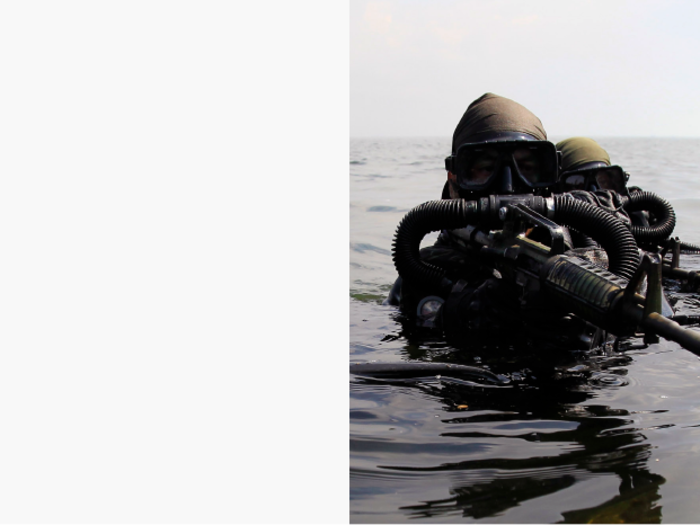
The Navy SEALs are the highly secretive and selective military group that carries out special operations.
The SEALs got their name because they operate in all environments — Sea, Air, and Land.
11 words you probably didn't know were acronyms
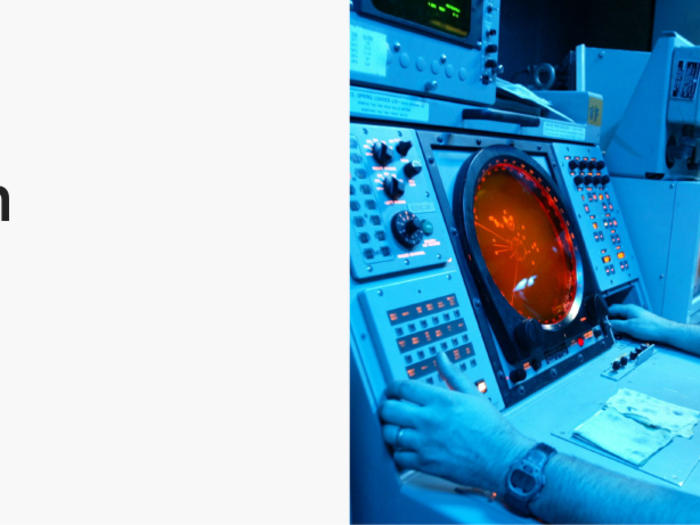
Radar technology was developed so that militaries could use radio waves to detect objects like ships and airplanes from long distances.
Although the idea for radar had been around since at least the 1880s, it wasn't until the buildup to World War II that the technology was perfected. In the early 1940s, the US Navy coined the word "radar," standing for "Radio Direction and Ranging" or "Radio Detection and Ranging."
Scuba describes the device divers use to breathe underwater
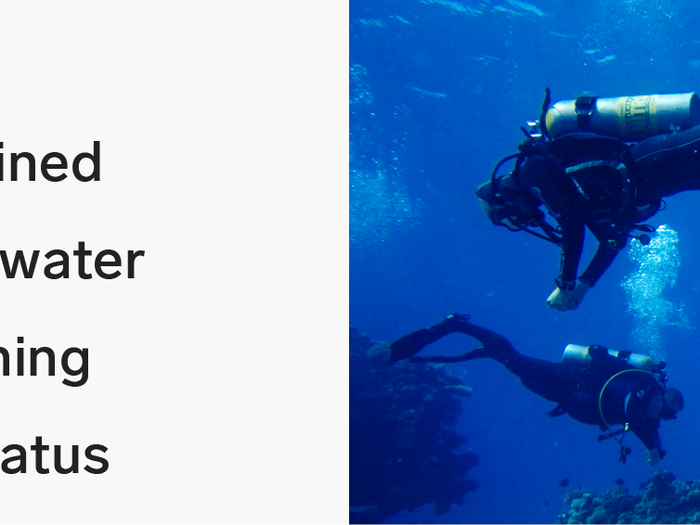
The "scuba" in scuba diving stands for "self-contained underwater breathing apparatus."
The word was coined in 1952 by Christian Lambertsen, an American scientist who designed a form of the underwater-breathing technology in the 1940s.
SNAFU has a military origin as well.
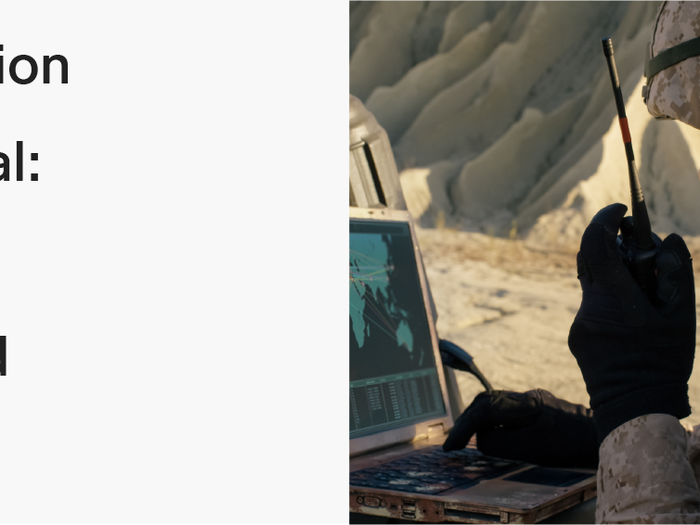
Like many of the other acronyms on this list, "snafu" has a military background as well.
The colorful expression meaning a chaotic or messy situation first arose in the 1940s as US military jargon. Snafu stands for "Situation Normal: All F---ed Up," although the profanity-averse sometimes change it to "fouled up."
ZIP Codes were a plan to improve US postal zones.

ZIP Codes aren't just named that way because they help our mail get delivered faster. It actually stands for something — Zone Improvement Plan.
ZIP Codes were the work of Robert Moon, a postal inspector who in 1944 proposed that the US Postal Service assign three-digit codes to zones across the country.
The postal service adopted his idea in 1963, but not before adding two more digits to make the five-digit ZIP Codes we recognize today.
Popular Right Now
Popular Keywords
Advertisement